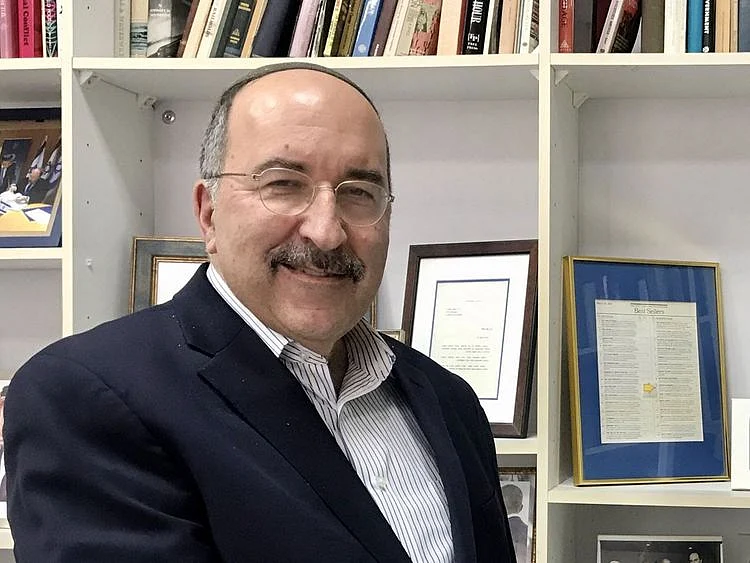‘Abraham Accords whole new paradigm for diplomats’
Dore Gold: Iran not just military problem that can be answered with use of military power

Dubai: The UAE-Israel peace deal has led to a new structure that will make peace more likely, Ambassador Dore Gold, an influential Israeli political analyst, told Gulf News in an interview. Gold, who is President of the Jerusalem Centre for Public Affairs, served as Director General of the Ministry of Foreign Affairs, and has been an adviser to Prime Minister Benjamin Netanyahu.
Currently in Bahrain to attend the ISS Manama Dialogue summit, Gold has been at the forefront of foreign policy-making at both official and unofficial levels in Israel. Asked by Gulf News about Iran, he focussed on what he termed ‘the scale of the Iranian threat in the years ahead’. Excerpts from an interview:
Gulf News: What will be the biggest impact, from your perspective, of the Abraham Accords in the region and beyond?
I will be frank and as open as possible in my answer. In the years following the 1967 Six Day War, the Palestinian issue came to be perceived as the key for resolving the Arab-Israeli conflict. As a result, we effectively gave the PLO, which unfortunately replaced Jordan as the sole representative of the Palestiniain people, a new veto power over any future peace process for our region ... The Abraham Accords represented a whole new paradigm for diplomats. It gave the Arab states the freedom to make peace with Israel, while not denying the Palestinians the right to join the process when they are ready. This new structure will make peace more likely.
UAE and Israel have the most advanced economies in the Middle East. And since the signing of the Accords, business activity has been progressing at a frenetic pace. Which are the areas you think Israel can benefit from most through its peace deal with the UAE?
Everyone knows how Israeli hospitals contribute medical services to the Palestinians and the Israeli Arab community. What they don’t always recognise is that Israeli Arab doctors are part of the Israeli medical story. I needed emergency eye surgery two years ago at Shaarei Tzedek hospital in Jerusalem, and my Israeli Arab doctor was trained in Jordan. He was excellent.
This gave me the idea that our medical communities need to interact even more and elevate the level of medical services across our region, whether we are dealing with cancer, COVID-19, neurology, or other fields where our cooperation can make a difference.
Since you are at the Manama Dialogue, what do you believe are the Middle East’s most pressing security challenges, and what ‘fresh thinking’ can be applied to address them?
Only a blind person would not recognise the scale of the Iranian threat in the years ahead. But it is not just a military problem that can be answered with some new use of military power. We need to construct a 'strategic wall' to contain Iranian expansionism ... We need to build a political coalition for that purpose. I was in government and sometimes it can be instrumental in providing the fresh thinking that is needed here. But often the thinking comes from think tanks, like mine, who are also in discussions with government officials. We just re-opened our Farsi department for that purpose.
Is it a fair assumption that, as things stand, Israel holds a ‘veto’ on any Iranian nuclear deal with the Big Powers?
You have to remember the stakes involved for Israel. Senior leadership in the Revolutionary Guards and even more importantly the senior religious leadership in Qom have spoken about the need “to wipe Israel off the map”. You cannot wipe a country off the map without physically destroying its population. Among polite company we call that genocide ... That explains the intensity of our reaction to anything said by the Iranian leadership.
Israel has neither confirmed nor denied involvement in Mohsen Fakhrizadeh’s killing. Going forward, between now and January 20, when President Biden comes into the White House, are we likely to see more of these types of escalations?
These are issues which we don’t speculate about.
Sign up for the Daily Briefing
Get the latest news and updates straight to your inbox
Network Links
GN StoreDownload our app
© Al Nisr Publishing LLC 2026. All rights reserved.